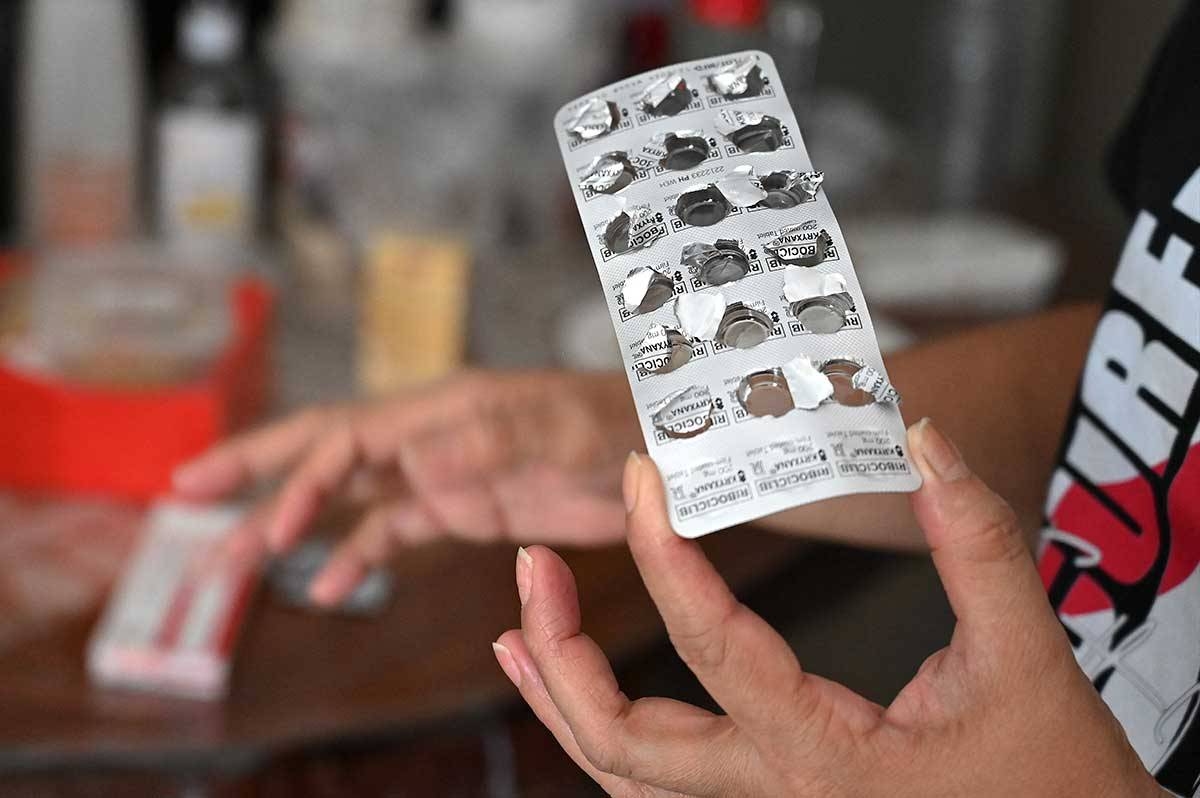Filipino Single Mother Falls Victim to Medical Misinformation on Social Media
Mary Ann Eduarte, a single mother from the Philippines, made the unfortunate decision to delay chemotherapy for her breast cancer and instead relied on food supplements falsely promoted on social media as cures for the deadly disease. This decision proved to be detrimental, as the cancer eventually spread to her lungs and bones.
Eduarte’s story is not an isolated case. Many Filipinos have been deceived by medical misinformation that floods social media platforms, making the country one of the world’s heaviest users of such platforms. Factors such as a shortage of doctors, the difficulty of accessing hospitals in the archipelago, poor health literacy, and the fear of incurring high medical bills have led individuals with chronic conditions to seek alternative treatments online.
In recent years, AFP digital investigation journalists have observed a significant increase in the volume of posts and paid advertisements promoting unproven treatments for diseases like cancer. This trend has been fueled by the COVID-19 pandemic, during which healthcare systems were overwhelmed and people were hesitant to visit hospitals.
Eduarte, who is 47 years old and earns a living by selling beauty products online, discovered a lump in her right breast during a self-check in 2014. She was advised to undergo a biopsy to determine if it was cancerous, but fear held her back, causing her to delay the procedure for two years. Instead, she spent around P50,000 ($900) per month on food supplements, including drinks made from tropical fruit and barley grass, which she had seen advertised as cancer cures on Facebook and YouTube.
In 2016, Eduarte finally agreed to have the biopsy, which confirmed the presence of a malignant tumor. However, she still refused chemotherapy, fearing the side effects, such as sickness and hair loss. Instead, she continued taking the supplements for another three years, believing the marketing claims that they would destroy her cancer cells based on testimonials she had seen.
Unfortunately, after her cancer metastasized, Eduarte finally agreed to undergo chemotherapy. Reflecting on her choices, she admitted, “I made the wrong decision. Those food supplements actually cost me more than if I had immediately sought standard medical treatment.”
The Prevalence of Online Misinformation
According to Madonna Realuyo, an oncologist at the Bicol Regional Hospital and Medical Center in the central Philippines, online misinformation about cancer treatment is a serious problem. She shared that five out of ten patients she sees inquire about something they have come across on the internet, and 90 percent of the time, the information is incorrect. Even when doctors provide accurate information, there is no guarantee that patients will listen or believe them.
The high cost of cancer treatment, which can reach millions of pesos, makes patients vulnerable to deceptive marketing of unproven products that are supposedly more affordable. Aileen Antolin of the Philippine Foundation for Breast Cancer explained, “Once you’re diagnosed with cancer, the reality is that there are a lot of out-of-pocket expenses.”
To combat the spread of misinformation, AFP has a global team of journalists dedicated to debunking false claims as part of the third-party fact-checking program of Meta, the parent company of Facebook. Fact-checkers from around 90 organizations, including media outlets, scrutinize posts on Facebook, WhatsApp, and Instagram.
AFP has repeatedly exposed posts on Facebook that falsely promote products as natural cures for cancer, including “Doc Atoie’s Finest Guyabano Wine,” one of the products used by Eduarte. This drink was featured in hundreds of posts shared on Facebook pages with tens, or even hundreds, of thousands of followers.
However, the Philippines’ Food and Drug Administration (FDA) has stated that it is currently unable to take action against companies or individuals who falsely promote products online due to the lack of guidelines for implementing this section of the 2009 law.
Addressing the Issue
The case of Mary Ann Eduarte serves as a poignant reminder of the dangers of medical misinformation on social media. It highlights the urgent need for comprehensive regulations and guidelines to protect individuals from false claims and unproven treatments.
Efforts should be made to improve health literacy among the general population, enabling them to make informed decisions about their health and seek reliable medical advice. Additionally, healthcare professionals should be equipped with the tools and resources to effectively communicate accurate information to patients, dispelling misconceptions and addressing concerns.
Collaboration between social media platforms, healthcare organizations, and regulatory bodies is crucial in combating the spread of medical misinformation. By working together, they can develop strategies to identify and remove false claims, promote reliable sources of information, and ensure that individuals have access to accurate and evidence-based healthcare resources.
Ultimately, protecting individuals from the harmful effects of medical misinformation requires a collective effort. By raising awareness, implementing regulations, and fostering collaboration, we can help prevent more cases like Mary Ann Eduarte’s and ensure that individuals have access to the reliable healthcare information they deserve.







